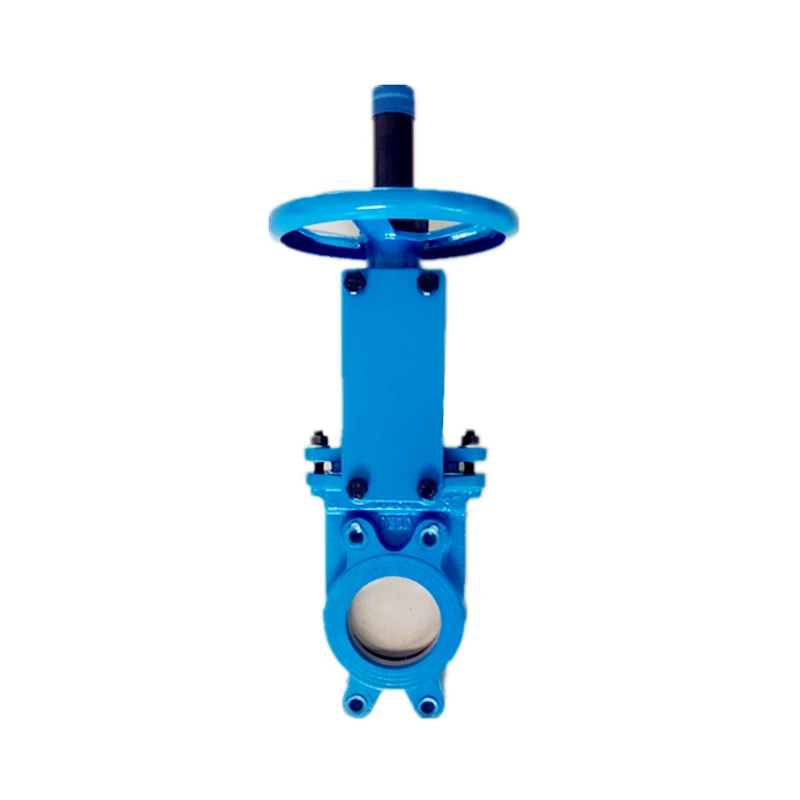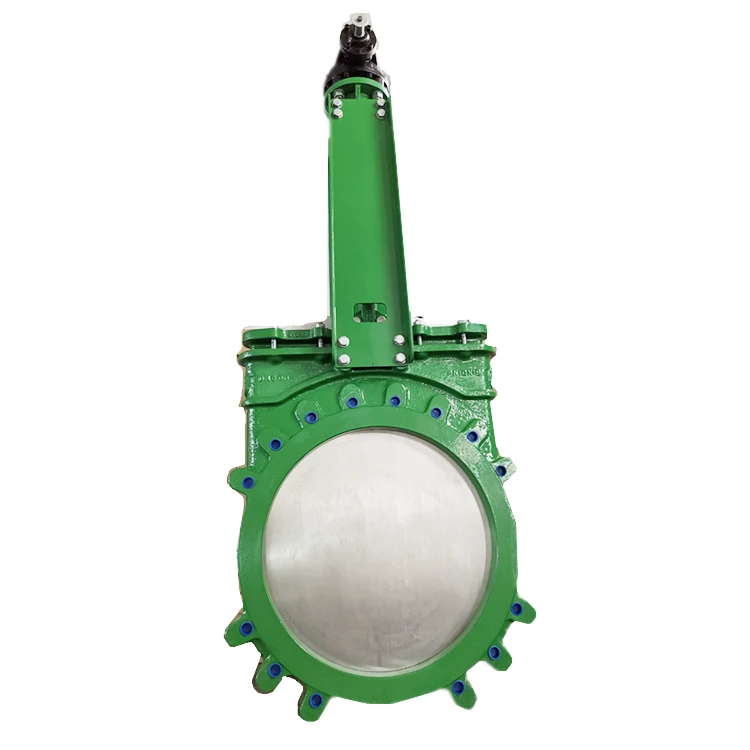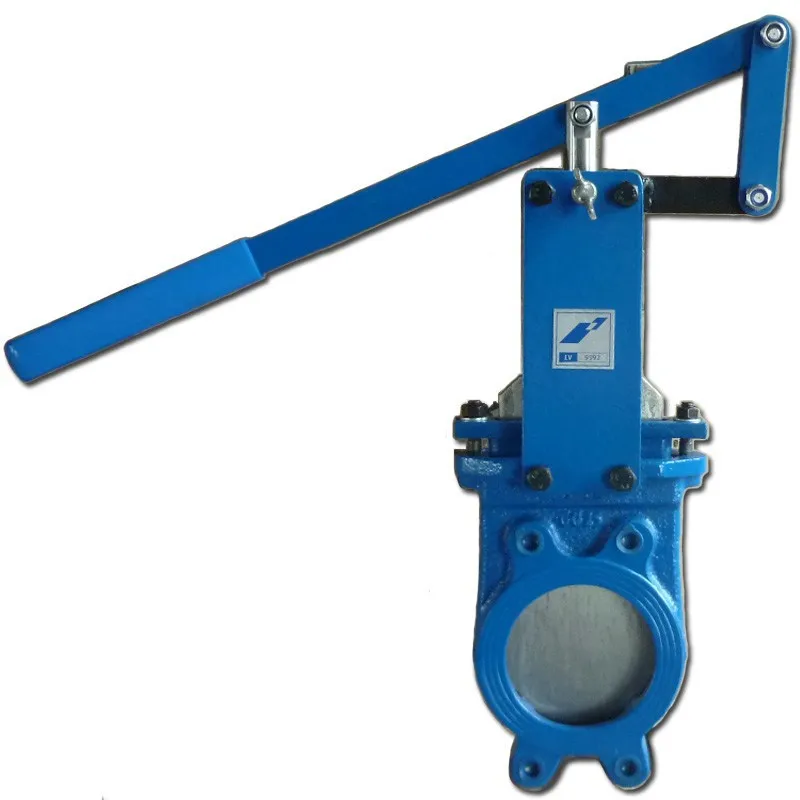Understanding Through Conduit Knife Gate Valves and Their Types
Key Takeaways
Through conduit knife gate valves are essential components in various industrial applications, known for their ability to handle slurries and solid materials effectively. Their design enables flow to travel in both directions while providing a clear path for the media, which minimizes the risk of clogging. The sealing mechanism is critical, as it ensures that the valve maintains a tight closure when not in use. This functionality is complemented by their minimal pressure drop and ease of maintenance, making them preferred choices across multiple industries.
Townley knife gate valves are recognized for robustness and reliability, often utilized in mining and wastewater applications. Their specific design features ensure they can withstand abrasive materials without deterioration. Performance under high-thermal conditions is another advantage that sets them apart.
The Trueline knife gate valve boasts innovative designs that incorporate user-friendly features. These valves offer quick installation and maintenance options, enhancing operational efficiency. Their lightweight structure does not compromise strength, allowing for significant weight reduction in piping systems.
In contrast, Tyco knife gate valves provide state-of-the-art engineering with enhanced performance characteristics. These valves feature advanced sealing technologies that improve their operational longevity while reducing the likelihood of leaks—making them suitable for applications from water treatment to highly corrosive environments.
Recognition of these diverse types of knife gate valves not only aids in selecting appropriate solutions but also highlights their unique contributions across various sectors.
Understanding Through Conduit Knife Gate Valves: Design and Functionality
Through conduit knife gate valves represent a critical component in various industrial applications, providing efficient isolation and flow control for slurries, liquids, and gases. These valves feature a unique design consisting of a knife-like blade that effectively cuts through the medium, allowing for minimal obstruction when fully open. This design facilitates optimal flow while reducing the risk of clogging. The through conduit style permits a direct passage through the valve body, ensuring that the media flows freely without being hindered by valve elements. This functionality is particularly advantageous in applications where sediment or solids are present.
The construction materials used in these valves can vary, often including stainless steel or other corrosion-resistant alloys, enhancing their longevity and reliability in demanding environments. Factors such as pressure ratings, temperature limits, and specific fluid characteristics play a significant role in selecting appropriate valve types for specific applications.
Parameter | Specification |
|---|---|
Body Material | Stainless Steel / Alloy |
Pressure Rating | Up to 150 psi |
Temperature Range | -20°F to 300°F |
Flow Coefficient (Cv) | Varies by size |
The straightforward design of through conduit knife gate valves ensures ease of maintenance and operation, contributing to their popularity across various industries, including mining, wastewater treatment, and chemical processing. Understanding these essential elements helps engineers and operators select the right valve for their unique applications while ensuring efficient system performance.
Exploring Townley Knife Gate Valves: Features and Applications
Townley knife gate valves are renowned for their robust construction and efficient performance across various industrial applications. Distinguished by their through conduit design, these valves facilitate reliable flow control while minimizing leakage. One of the key features of Townley valves is their full-port opening, which ensures an unobstructed flow path. This design enhances performance in applications involving slurries and other viscous fluids, as it reduces pressure drop and wear on the valve over time. The material selection in Townley knife gate valves often includes resilient coatings to resist abrasion and corrosion, making them suitable for harsh environments such as mining, wastewater treatment, and chemical processing.
The ease of operation provided by these valves is another significant advantage. Townley knife gate valves typically incorporate a simple handwheel or actuator mechanism, allowing for quick manual or automated operation. In addition to ease of use, safety is a vital consideration in their design; the valve construction often includes features such as integral seating to secure leak-proof sealing under pressure.
Applications for Townley knife gate valves span several sectors: from handling wastewater to managing pulp and paper processes. Users appreciate the versatility of Townley valves in handling specific tasks like isolation or throttling while maintaining high reliability under varied operating conditions. Their combination of durability, simple maintenance requirements, and adaptability make them a favored choice among engineers and maintenance personnel alike, ensuring optimal performance across diverse industrial settings.
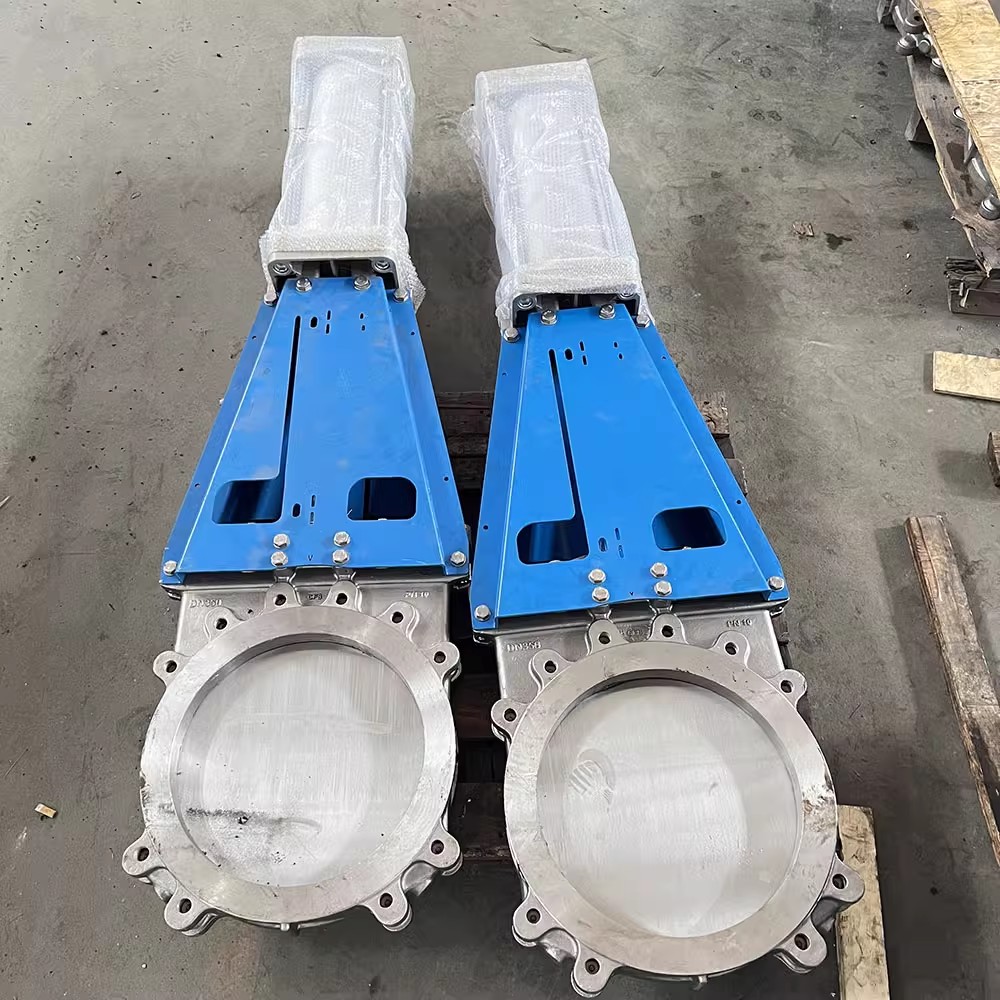
Trueline Knife Gate Valves: Advantages and Use Cases
Trueline knife gate valves offer a range of benefits suitable for various industrial applications. Their design facilitates effective isolation of flow in various sectors, including wastewater treatment, pulp and paper, and chemical processing. The integrated features of the Trueline series contribute to enhanced durability and reliability. The body is often constructed from high-grade materials that provide corrosion resistance, making them particularly well-suited for harsh environments.
Utilizing Teflon seals ensures optimal sealing performance, minimizing leakage during operation. This attribute is vital for applications where maintaining pressure integrity is essential. Moreover, the simplistic operation of these valves allows for easy manual or automated actuation, further enhancing operational efficiency.
Trueline knife gate valves also excel in handling slurry services, where traditional valves might struggle due to particle accumulation. Their design includes a smooth body contour that discourages build-up and promotes a free flow of materials. This feature decreases downtime often associated with valve maintenance, allowing for extended service periods.
For industries focusing on energy efficiency, these valves can significantly reduce operational costs due to their low friction during the opening and closing process. Additionally, their compatibility with various sizes and pressure ratings makes them versatile across different applications.
"Choosing the right type of valve can lead to significant improvements in process efficiency and reliability." Therefore, selecting Trueline knife gate valves can be a strategic decision for companies looking to optimize their operations while ensuring safety and compliance within their facilities.
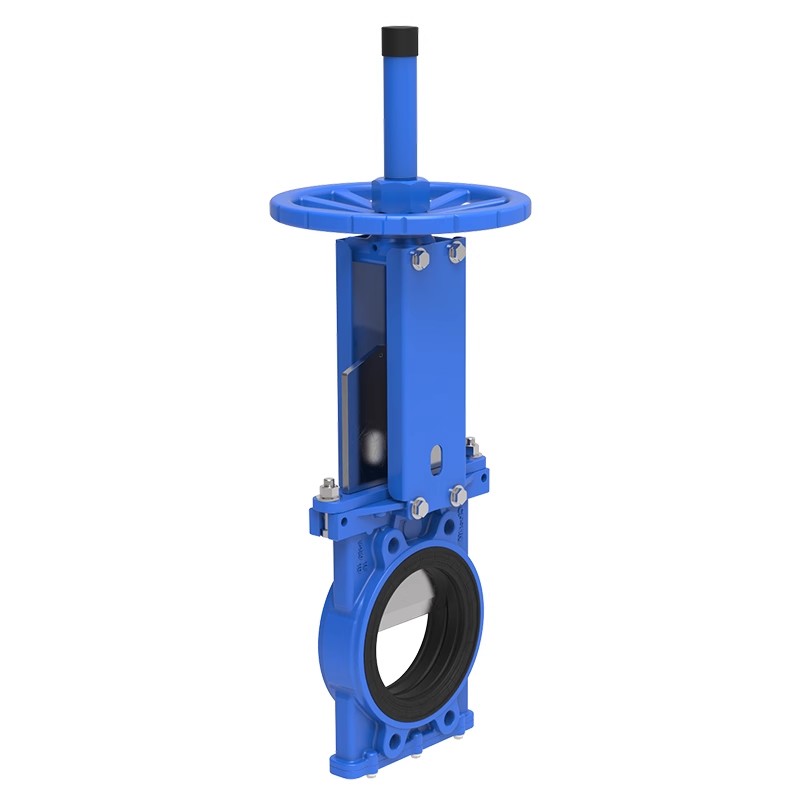
Tyco Knife Gate Valves: Specifications and Benefits
Tyco knife gate valves are designed to provide reliable performance in various industrial applications, especially in systems handling slurries, wastewater, and bulk materials. Their construction includes a robust body and a sharp-edged gate that allows for a clean cut through media, ensuring minimal leakage during operation. The unique design of Tyco valves includes both manual and automated options, thus catering to different operational needs. The use of high-quality materials, such as stainless steel and cast iron, enhances the valve's durability and resistance to wear from abrasive substances.
These valves feature a through conduit design, which helps in preventing media buildup and facilitates easy cleaning. This characteristic is particularly beneficial in applications where flow consistency is crucial. Additionally, Tyco knife gate valves come equipped with various sealing options that enhance their efficacy at high pressures while effectively isolating the system during maintenance or repair tasks.
The versatile usage of Tyco knife gate valves spans several sectors, including water treatment, mining, and pulp and paper industries. Their ability to handle diverse media types while maintaining performance makes them essential components in process systems.
These specifications highlight their advantageous role in providing seamless operation, reducing maintenance intervals, and improving overall process efficiency within industrial environments.
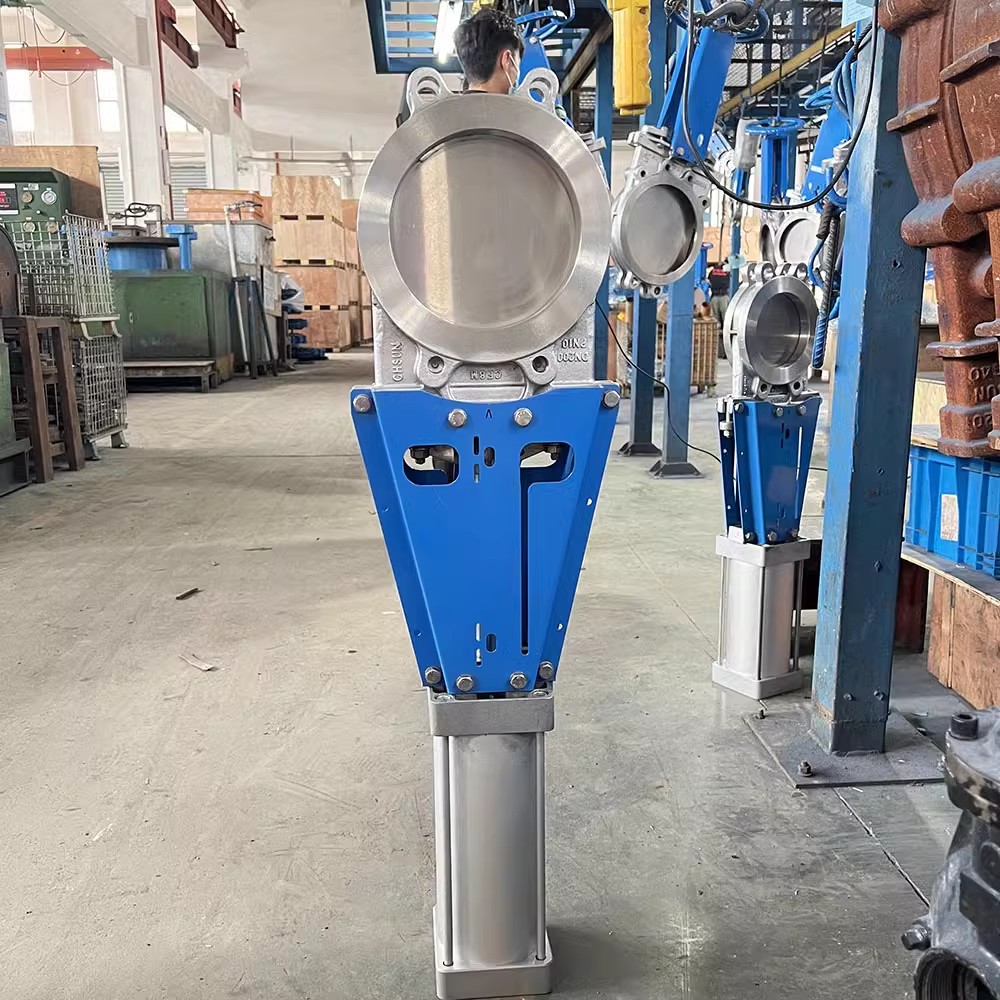
Conclusion
Through conduit knife gate valves offer a robust solution for controlling fluid flow in various industrial applications. Their design promotes an unobstructed flow path, reducing turbulence and wear, which enhances reliability. Townley knife gate valves are notable for their durability and ability to withstand harsh environments, making them suitable for slurry applications. The Trueline knife gate valve stands out with its ease of maintenance and versatile design, offering advantages in both standard and challenging conditions. In contrast, Tyco knife gate valves provide tailored specifications that cater to a wide array of operational demands, ensuring optimal performance across different sectors. Understanding these variations helps industries select the appropriate valve type for their specific requirements, improving overall system efficiency.
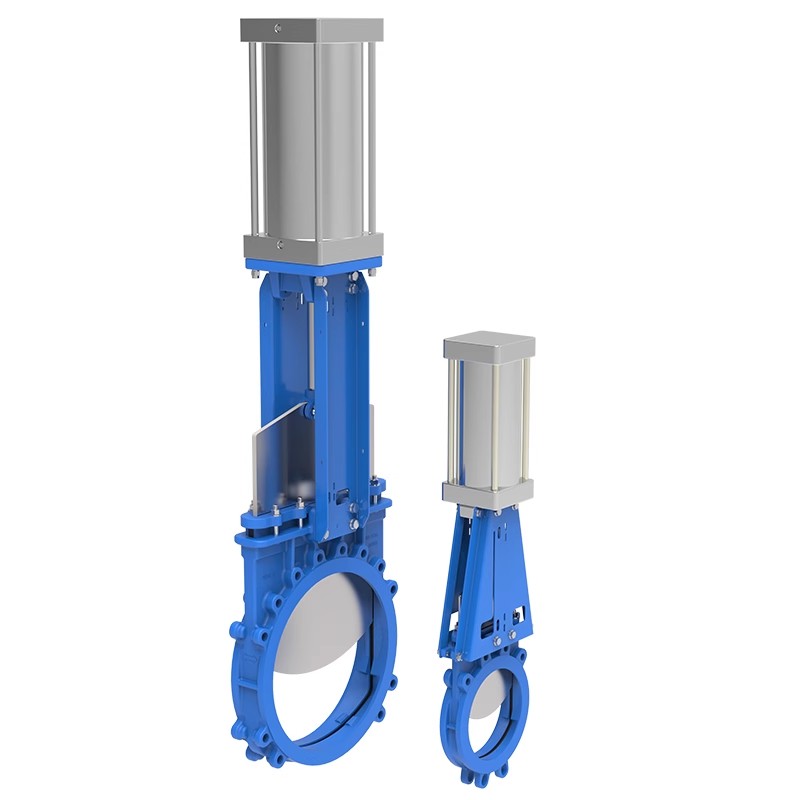
FAQs
What is a through conduit knife gate valve?
A through conduit knife gate valve is specifically designed to allow for the passage of materials with minimal obstruction, providing a straight-through flow path. This design minimizes pressure drop and prevents clogging in applications involving slurries or solids.
What are the unique features of Townley knife gate valves?
Townley knife gate valves are recognized for their durable construction and effectiveness in heavy-duty applications. They often feature a reinforced body and blade design, ensuring reliability in harsh conditions while also providing efficient sealing capabilities.
What advantages do Trueline knife gate valves offer?
Trueline knife gate valves offer benefits such as lightweight construction, ease of installation, and reliable performance under low-pressure conditions. Their innovative design allows for reduced maintenance needs, making them suitable for various industrial applications.
How do Tyco knife gate valves differ from others?
Tyco knife gate valves are distinguished by their engineered features that promote enhanced flow control and longevity. They also include options for automated actuation, allowing for precise operation across different systems in both water and wastewater management.
What are the common types of knife gate valves?
The main types of knife gate valves include through conduit, standard flange connection, and wafer style. Each type is tailored for specific applications based on operational requirements such as space limitations, pressure levels, and material flow characteristics.

